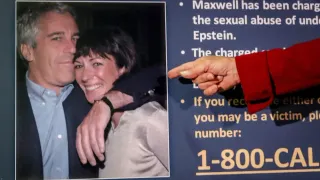September 30, 2024
Andrew Garfield Praises Steamy Daniel Craig, Drew Starkey Love Scene from 'Queer'
Kilian Melloy READ TIME: 1 MIN.
Andrew Garfield says he's only viewed a single scene from Luca Guadagnino's new move "Queer" – depicting a blow job between Daniel Craig's and Drew Starkey's characters – but he called it "so tender and full of longing," Just Jared reported.
Citing comments the British "The Amazing Spider-Man" actor made to The Hollywood Reporter, Just Jared quoted Garfield saying that the Italian director has "only shown me one blowjob scene, which I thought was so genuinely beautiful, like it was such a beautiful love scene."
Garfield stars with Florence Pugh in a new romantic drama titled "We Live in Time." He spoke with The Hollywood Reporter about that film, with the entertainment news outlet noting that Garfield is set to star in Guadagnino's next movie, "After the Hunt." Garfield will star "alongside Julia Roberts and Ayo Edebiri" in that film, THR detailed.
Discussing his work with the "Call Me by Your Name" director, Garfield said that "After the Hunt" is "a very serious, grown-up drama," but added that Guadagnino "is a very playful director."
"Luca's like pure imagination and freedom. His creativity is this free, radical, sublime thing."






